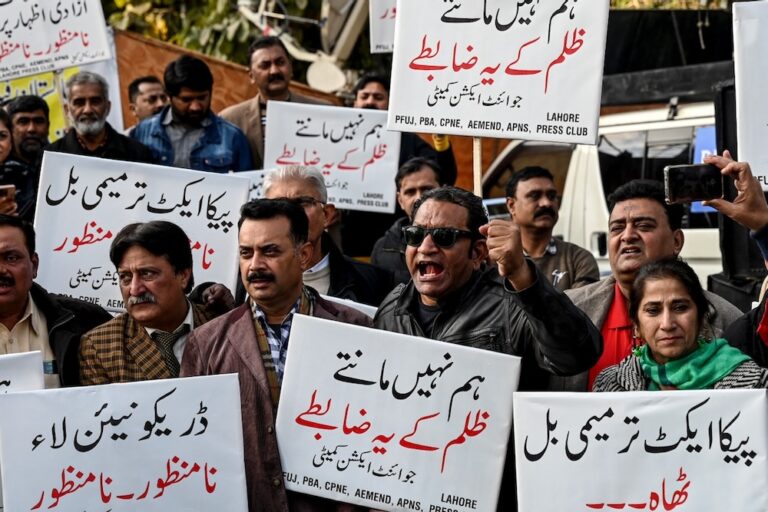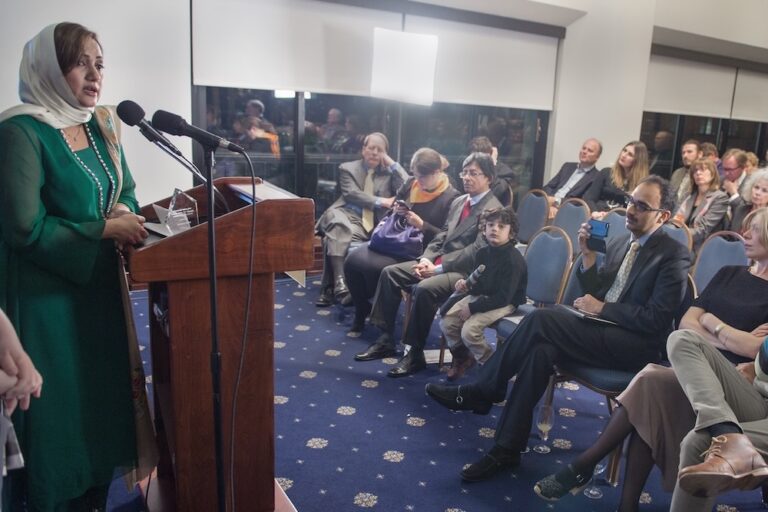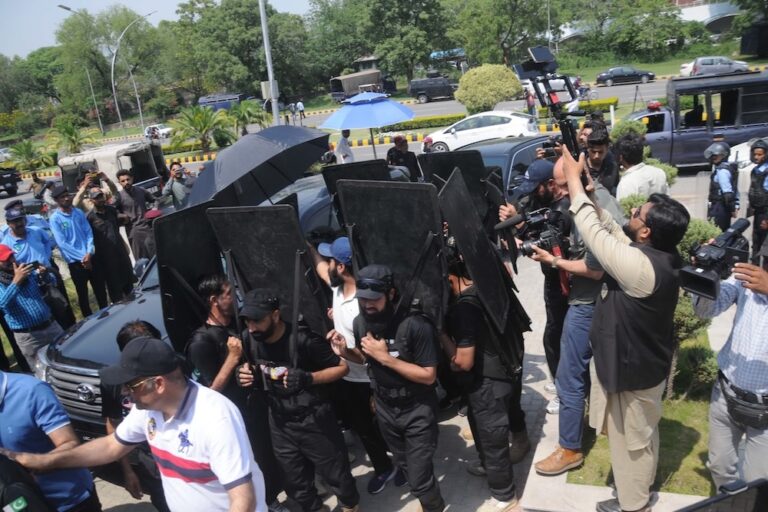(PPF/IFEX) – On 12 January 2004, the Sindh High Court accepted an appeal on behalf of reporter Marc Epstein and photographer Jean-Paul Guilloteau and set them free. The French journalists’ lawyer, Nafis Siddiqui, had filed the appeal seeking to overturn the journalists’ 10 January conviction by a Karachi sessions court for violating visa regulations. On […]
(PPF/IFEX) – On 12 January 2004, the Sindh High Court accepted an appeal on behalf of reporter Marc Epstein and photographer Jean-Paul Guilloteau and set them free. The French journalists’ lawyer, Nafis Siddiqui, had filed the appeal seeking to overturn the journalists’ 10 January conviction by a Karachi sessions court for violating visa regulations.
On 10 January, Epstein and Guilloteau, from the French weekly “L’Express”, pleaded guilty of having visited the city of Quetta but said they were not involved in any unlawful activity. State Counsel Mahmood Alam Rizvi appeared for the prosecution. Karachi Additional Sessions Judge II Nuzhat Ara Alvi ruled that the two journalists had violated a provision of the Foreigners’ Act by travelling to Quetta without permission. She sentenced Epstein and Guilloteau to six months in prison and a fine of Rs. 100,000 (approx. US$1,800) each. The judge subsequently accepted an application by the journalists’ lawyer and suspended the sentence by one week to enable them to file an appeal with the Sindh High Court.
Justice Zawar Hussain Jaffery, who heard the appeal on 12 January, waived the journalists’ imprisonment but doubled the amount of the fine, from Rs. 100,000 to Rs. 200,000 (approx. US$3,600).
Epstein and Guilloteau were arrested on 16 December 2003 by Federal Investigation Agency (FIA) personnel in Karachi. They had returned from the city of Quetta, which they had visited without permission. The two journalists had obtained visas for Karachi, Lahore and Islamabad.
The journalists’ lawyer argued before the Sindh High Court that the trial court grossly erred in convicting the appellants, as the conviction could not be solely based on the journalists’ guilty plea. The offence with which the journalists were being charged had to be corroborated by evidence, Siddiqui argued, and not be based on their alleged statement to the FIA, which had yet to be brought on record as part of the mandatory prosecution evidence.
Siddiqui contended, moreover, that the sentence handed down by the sessions court was “very harsh and excessive” and that it would have been more appropriate had the journalists been deported from Pakistan, which has been the rule and practice for foreigners visiting Pakistan illegally.


